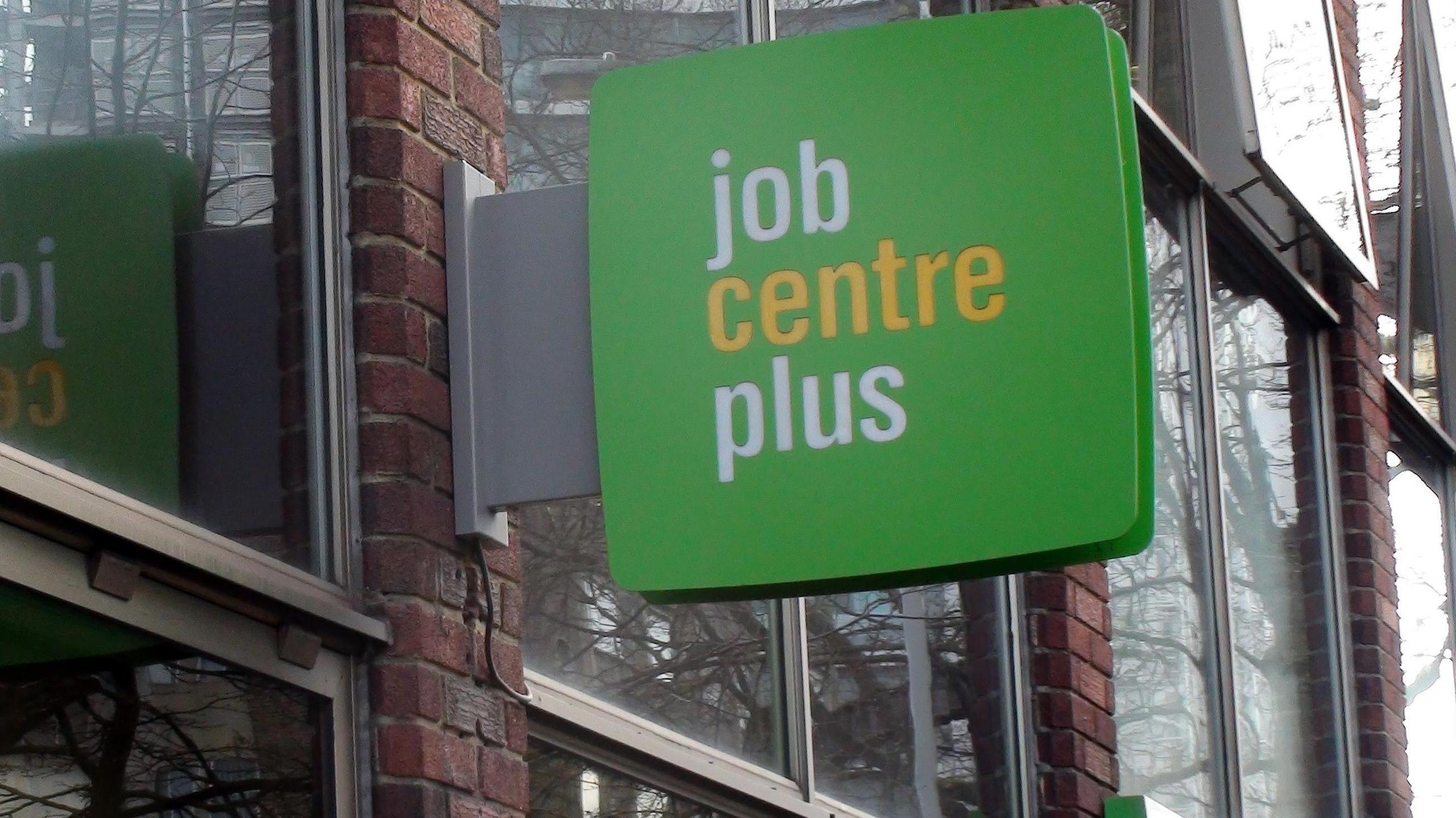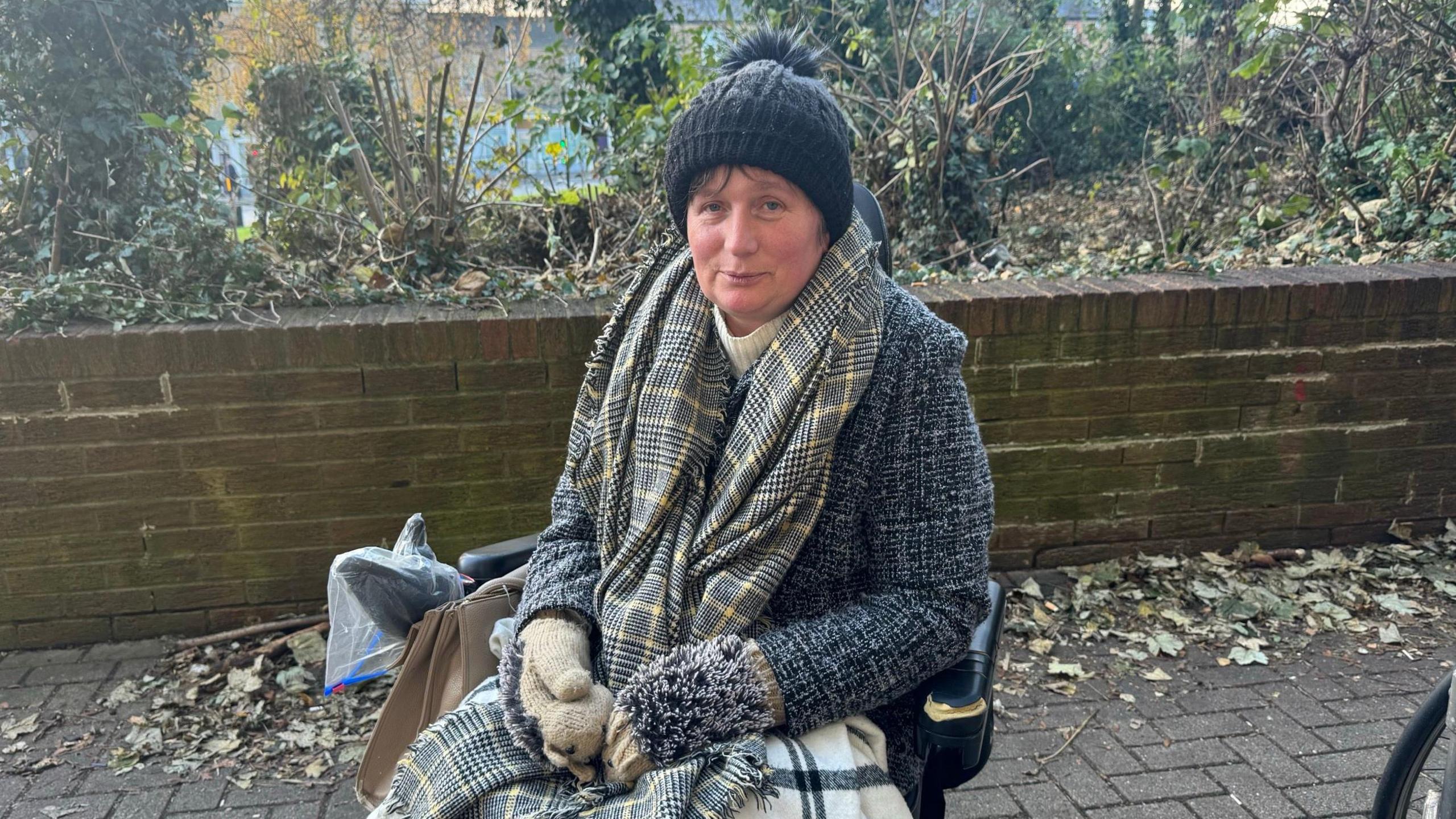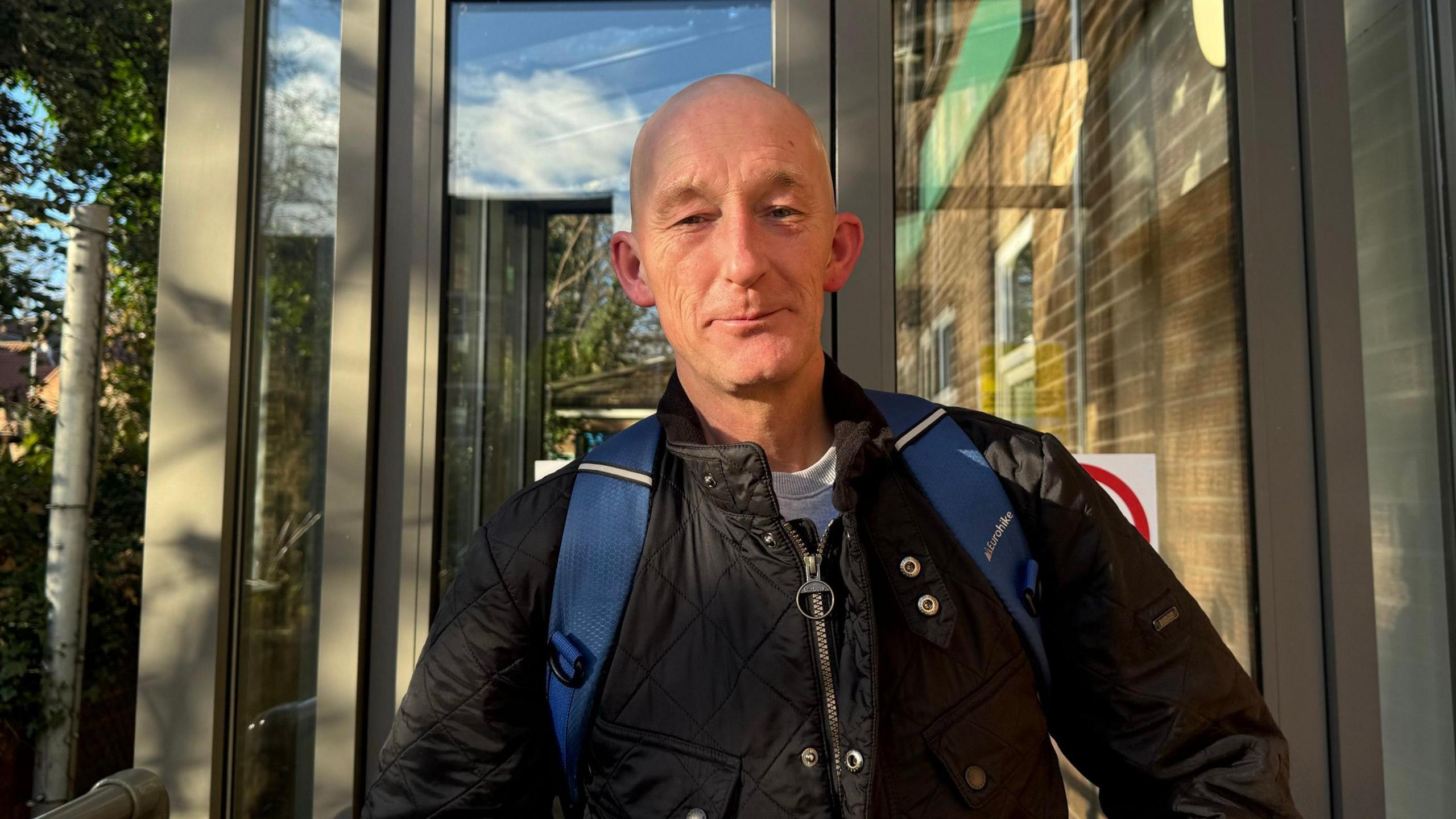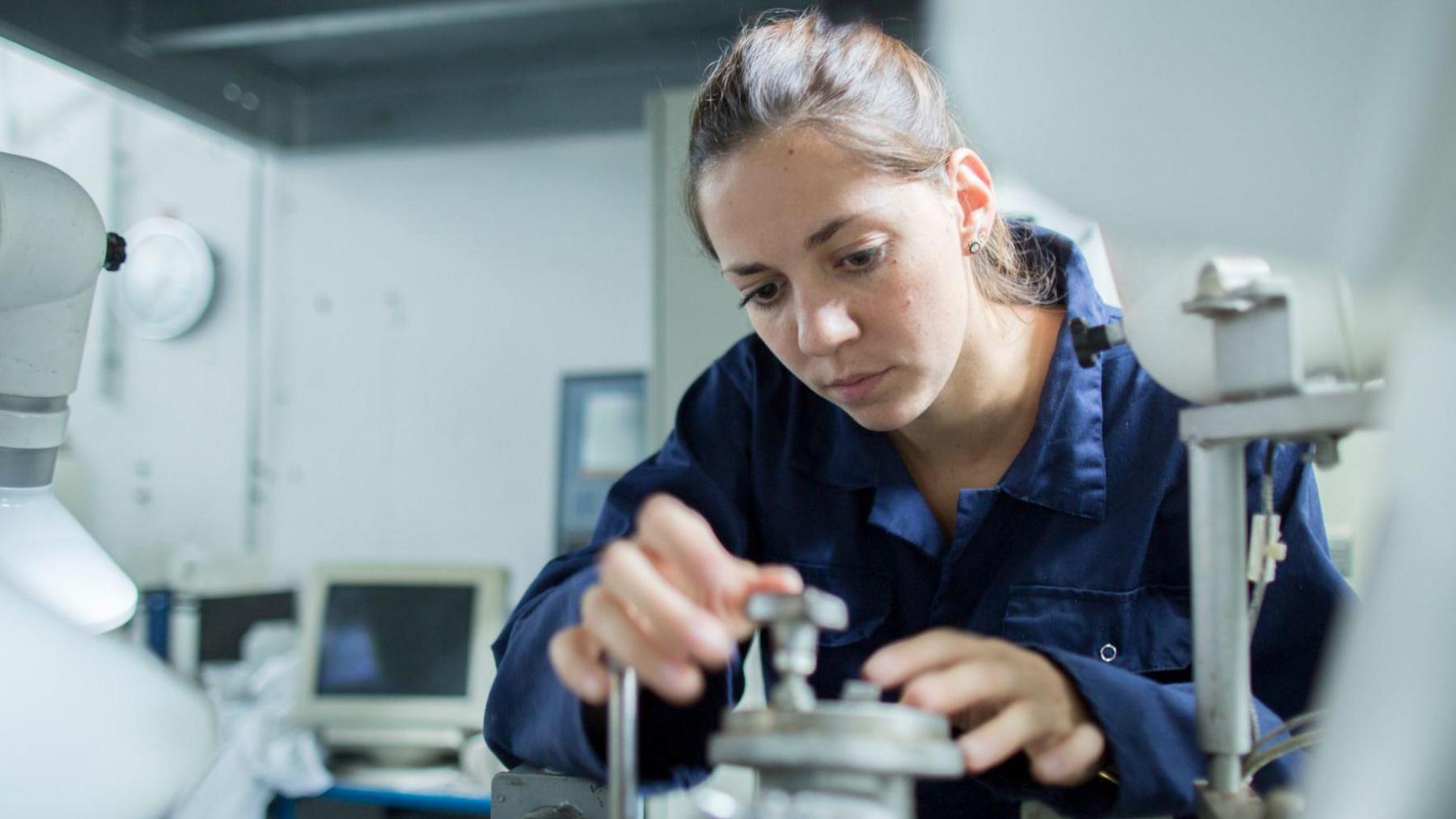'I feel intimidated and judged at the Jobcentre'

York and North Yorkshire is one of eight areas to trial ways of getting people back to work
- Published
A £10m government funding package has been announced to help unemployed people in York and North Yorkshire get back to work.
The programme was announced alongside the government's Get Britain Working white paper, with the area chosen as one of eight across the country where a trial of ways to help people return to work will be launched.
The York and North Yorkshire scheme is expected to focus on improving support for people not working due to ill health, with David Skaith, the area's elected mayor, saying the money would be used to "test new approaches".
But what about those most likely to be affected? People at the Jobcentre Plus on Monkgate in York have spoken to the BBC about the issues they face - and whether they feel the new project will help them succesfully get back to work.
'You feel judged'

Caitlin O'Brien-Lowe has fibromyalgia, which she says makes finding work that suits her situation difficult
Caitlin O’Brien-Lowe, who is originally from Manchester, had shown up for her appointment at the Jobcentre.
"I need help getting into work," the 25-year-old said.
"I have fibromyalgia, which is a chronic pain condition, so I have pain all over my body.
"It can make finding work really difficult, so I need help."
Caitlin said she would "take anything" in terms of work, but an admin or office job would suit her most.
"But I'm at the point where I just need a job," she said.
While accessing support, Caitlin said she thought the several referrals she received could have been done at the Jobcentre itself, to make things easier.
She said she was also nervous about speaking freely, in case a decision was made against her and staff would not believe she was ill.
"It can be really intimidating going in - and you do feel judged," Caitlin added.
"It can be difficult having to go in and you feel like if you say the wrong thing, you can get your money taken off you."
She hoped the £10m scheme for York and North Yorkshire would help to "create a less judgemental environment where people feel more safe to open up".
'It's like a prison'

Michelle, 49, has ME and has been out of work since 1997, when her condition developed
Michelle, from Acomb in York, had arrived at the Jobcentre for a meeting about switching to Universal Credit.
She has had ME, a chronic fatigue condition, for about 27 years, which requires her to use an electric wheelchair to get around.
"Nobody in that Jobcentre understands what it is or how it affects me," the 49-year-old said.
"If they force me to do any level of activity, I could end up bedridden - unable to speak and unable to chew food.
"There are a lot of people with my condition who spend decades in bed just staring at a wall. It’s like living like you’re dead."
Michelle said she had been out of work since 1997, when her condition worsened, but had lived in fear she would be declared fit and well.
"The reason I’m in this power chair is because when I first got the illness, people didn’t believe someone who was 21 could be seriously ill like that and I was forced to over-exert," she said.
"Since my disability developed, I felt like if I did any level of activity at all, I would be punished: I’d have my wheelchair taken off me, my benefits would be cut, and they would see it as an opportunity to declare me fit for work or say my illness isn’t real."
Michelle added that as a result of this, she had spent her life "just existing".
"It’s like a Department for Work and Pensions prison I’ve been living in because of my beliefs," she said.
"I feel like I can’t work with them. I can’t trust them and I can’t be me without something horrible happening."
'I struggle with technology'

Geoffrey Horner says he is looking for work after being diagnosed with cancer
Geoffrey Horner, from York, turned up for his appointment at the Jobcentre looking for help finding a job.
The 57-year-old said he had been out of work since he was diagnosed with cancer, but was "getting better all the time".
"They are absolutely nice people," he said of the staff.
"I struggle with technology, medications and my memory - and they’ve all helped me very much. I have nothing but respect for them."
Geoffrey said he hoped to find employment in horticulture, which he has done all his life.
"But it depends whether my health lets me do that again," he said.
"It would be full-time, maybe in a garden centre, but not as physical as it used to be."
'Biggest reforms'
The government said its Get Britain Working white paper would boost the size of the British workforce with the "biggest employment reforms in a generation".
York and North Yorkshire mayor David Skaith said the funding was a "great opportunity".
"We’re incredibly excited and passionate to bring this trailblazer to York and North Yorkshire and help people get healthy and get back to work."
The BBC has contacted the Department for Work and Pensions for comment.
Listen to highlights from North Yorkshire on BBC Sounds, catch up with the latest episode of Look North or tell us a story you think we should be covering here, external.
Related topics
Related Internet links
- Published26 November 2024

- Published26 November 2024
